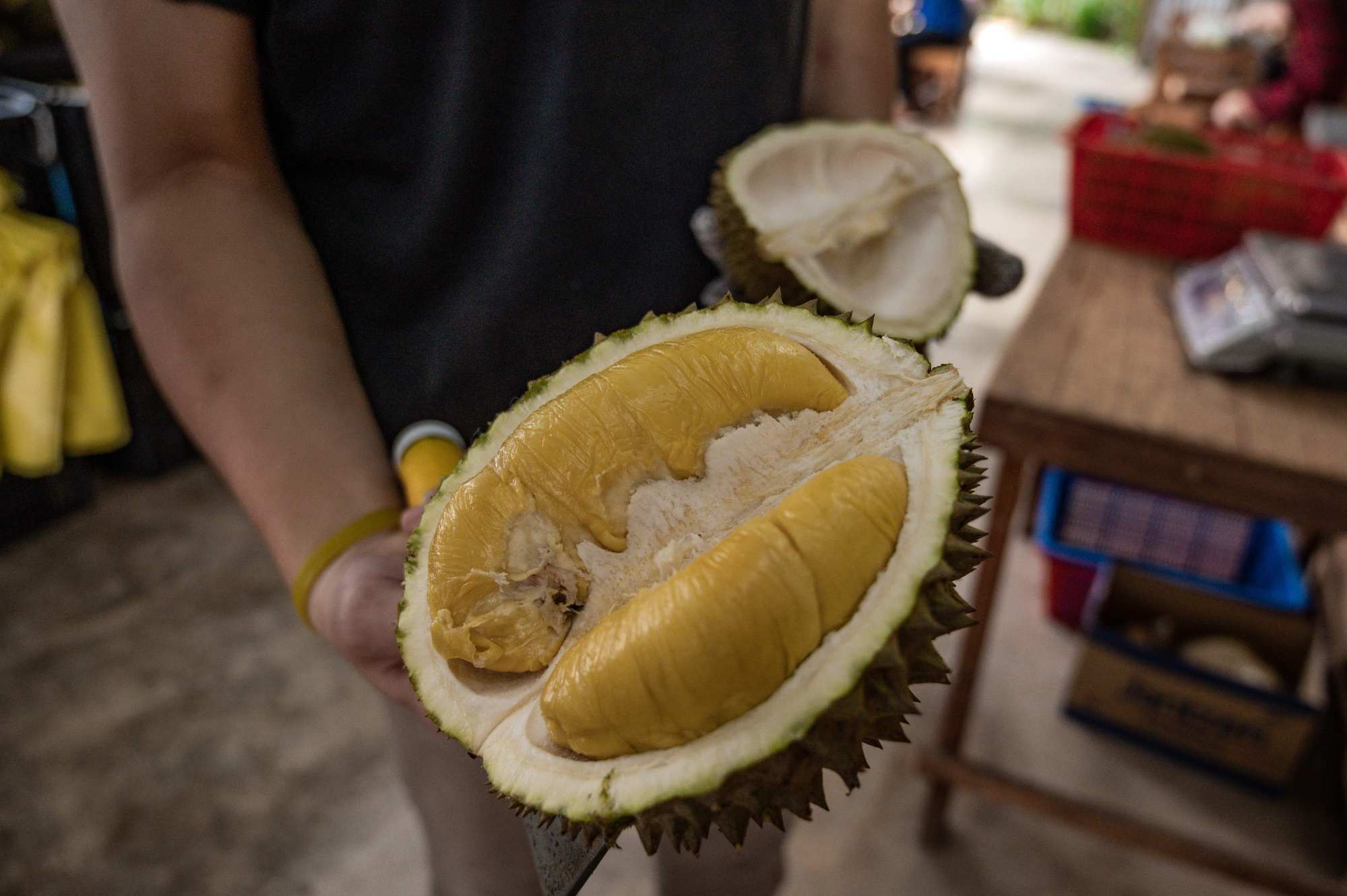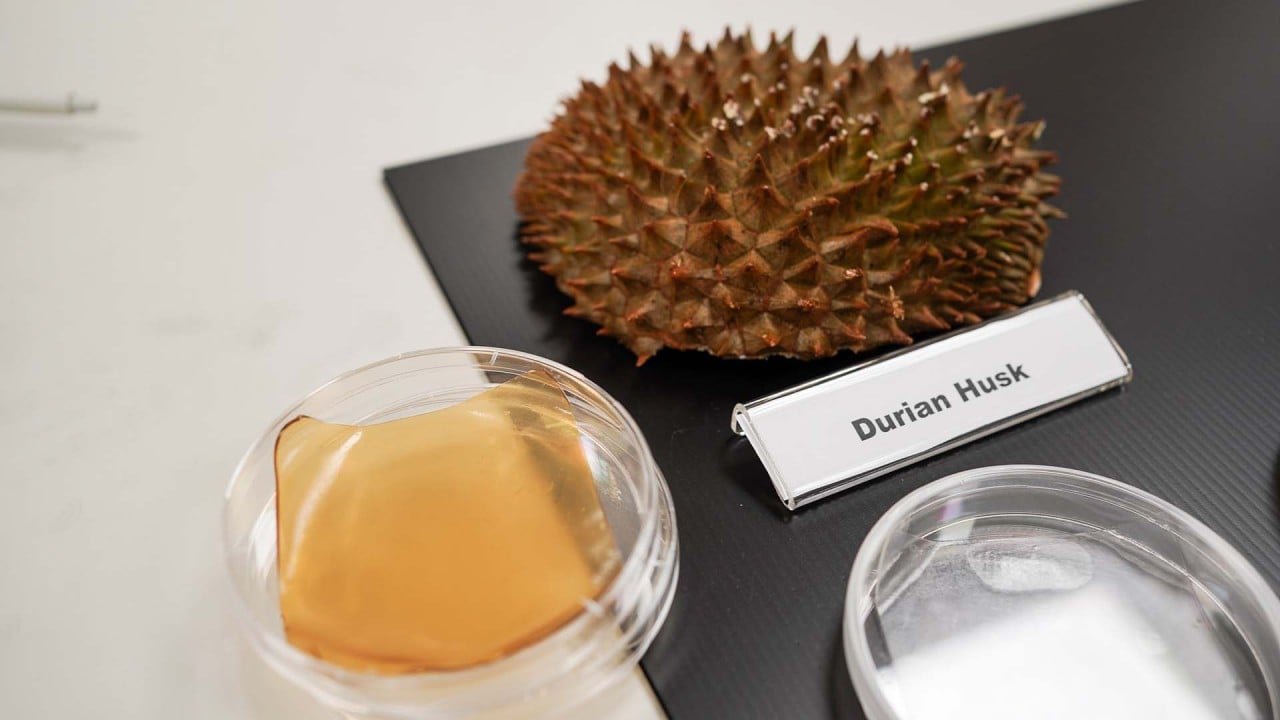
From Japanese foreign minister to ‘King of Fruits’ promoter: Taro Kono on his new life as a durian cheerleader
- After leaving the cabinet, Taro Kono sniffed out a new career direction. He is now an honorary chairman of the Japan Durian Promotion Association
- He tells This Week in Asia his taste for the stinky ‘King of Fruits’ developed in Singapore. Now his task is to convince compatriots to eat, import and grow it
There is nothing quite like the durian to divide opinion. To some, it is a foul-smelling pod that is so overpowering it is banned on some cities’ public transport systems. For others, its creamy texture and custard-like flavour make it the “king of fruits”.
The durian is not native to Japan – it originally comes from Southeast Asia – so it is perhaps a surprise that Taro Kono, a former foreign minister, is such a fan.
So enamoured is Kono with the spiky-skinned fruit that he accepted an invitation late last year to become honorary chairman of the Japan Durian Promotion Association. And, he says, he would have taken the post earlier if possible.
“For me, it’s all about the taste,” he told This Week in Asia. “Durian tastes good to me and there’s a reason why it is known as the king of fruits.”
“When I was in the cabinet, I was not permitted to take up a position in an association such as this, but after I left the cabinet last year I was able to join,” he said. “But even before that, I had a durian party in my office and invited all my team to come and try the fruit.
“Most of them had never tried durian before, but once they had tasted it they were converted.”
What’s that smell? Asia’s obsession with durian is ripening fast
Kono concurs that the smell can sometimes be a little on the pungent side, but he insists he got used to the aroma while in Singapore. And now, he says, his mission is to make durians more popular with Japanese consumers, help the association to increase imports and, potentially, begin commercial growing of the crop in Japan for both the domestic market and for export.
The association is made up of companies that import durians, but at least one firm is trying to grow the fruit in Okinawa prefecture, Kono said.
“The temperatures there are warm enough to grow durians, although they might require greenhouses for part of the year, but growing them here in Japan will make them cheaper and easier to obtain for Japanese people,” he said. “And Okinawa is very close to Taiwan and China, which could be good export markets.”
Businessman Kunio Shinohara, chairman of the association and CEO of Yokohama-based Rising Sun Traders Ltd – which exports the likes of used trucks and construction machinery – is confident the potential for durians in Japan is significant.
“At the moment, it is unusual to find a durian in a Japanese supermarket or even a specialist fruit shop,” he said, pointing out that total exports to Japan come to about 400 million yen (US$3.48 million) a year.
Specimens imported from Thailand or Vietnam retail for around 6,000 yen (US$52) while a premium Musang King variety of durian sells for 11,000 yen (US$95).
“We anticipate that in five years, demand will be four times what it is at present,” said Shinohara.

At the moment, many imported durians are consumed by people from other parts of Asia who live in Japan or by customers in ethnic restaurants, while the association’s research indicates that 80 per cent of the Japanese who purchase durians have lived in Southeast Asia previously.
“I first tasted durian about 25 years ago when I was on a visit to Malaysia and I did not like it at all,” Shinohara confessed. “But then I later visited a durian farm and I ate it fresh, it was completely different and I’ve loved it ever since.”
Durian frenzy sweeps Hong Kong as Malaysia’s Musang King takes on Thai imports
Shinohara has another firm that operates two durian plantations in Malaysia and is being advised by a Kyoto Prefectural University professor specialising in fruit to develop a durian plant that can thrive in southern Japan.
“In the future we intend to target the domestic market but also to export to other countries, probably starting with Taiwan and China,” Shinohara said.
“And we are really hoping that having Mr Kono as part of our organisation will help to make durians popular in Japan.”


